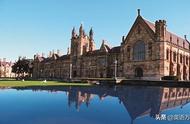
@外语教师联盟

“
Every sort of mastery is an increase of one's freedom. —Henri Amiel
每精通一事就增加一分自由。 —亨利·艾米尔
”
教学背景
本单元话题——健康饮食(Healthy eating)。良好合理的健康饮食习惯是保健的一个重要方面,可使身体健康地生长、发育;不良的饮食习惯则会导致人体正常的生理功能紊乱而感染疾病。相反,恰当的饮食对疾病会起到治疗的作用,帮助人体恢复健康。在当今社会,已成为一个很热门的话题。
疑难追踪
1.Everybody has to eat, but do you eat a healthy diet?(P9)
难句解读
每个人都要吃饭,但你的饮食是否健康呢?
diet
作名词时意为“日常饮食(食物);规定饮食”,作不及物动词时是“按规定进食,忌口,节食”的意思。diet的常用词组有:a healthy diet健康饮食;go/be on a diet节食。
例如:
Too rich a diet is not good for you.
口味太重对你没好处。
The doctor ordered him to go on a diet to lose weight.
医生吩咐他节食减肥。
No sugar in my coffee, please. I am dieting.
请不要在咖啡里加糖,我正在节食。
难点深究
diet和food的区别:
diet可作名词也可作不及物动词;而food只可作名词用。作名词时二者都有“食物”的意思。但diet侧重指习惯的食物或规定的食物,特指维持健康的食物,如病人的疗养食物。food一般指的是能吃能喝具有营养的东西,为不可数名词,当表示食物的种类时为可数名词。
例如:
The doctor has ordered me a special diet.
医生给我安排了特殊的饮食。
The patient must not go without food, but he must have a diet without sugar.
这个病人不可不吃东西,但要吃不含糖的食物。
2.What will happen to you if you dont eat a balanced diet?(P9)
难句解读
如果饮食不均衡,会发生什么呢?balance作及物动词时是“权衡;使平衡;抵消”的意思;作名词时是“天平;平衡”的意思;其形容词形式为balanced,是“均衡的,平衡的”的意思。
balance的常用词组有:
a balanced diet 均衡饮食
be out of balance 不平衡on balance总的来说
keep one's balance=balance oneself 保持平衡
lose one's balance 失去平衡,心慌意乱
例如:
A balanced diet and regular exercise are both important for health.
均衡饮食和定期锻炼对健康都是很重要的。
I found it hard to keep the balance on the icy path.
我发现在结冰的路上很难保持平衡。
Despite some failures, our firm has had quite a good year on balance.
我们公司尽管存在某些不足之处, 总的来看这一年还是相当不错的。
3.Nothing could be better.(P10)
难句解读
再没有比这更好吃的了。
这里是用比较级的否定形式表达最高级的意义,其表达的意义等同于All his foods could be the best。
例如:
No human being could have passed a happier childhood than myself.
没有哪个人比我度过了更快乐的童年。
Nobody loved money better than he.
没有哪个人比他更爱财。
—How is everything going these days?
近期过得怎么样?
—Couldn't be better.
再好不过了。
4.Suddenly he saw his friend Li Chang hurrying by. (P10)
难句解读
突然间,他看到自己的朋友李昌匆匆地走过。
这里是see sb.doing sth.结构。hurry在此为不及物动词,是“赶紧,匆忙(朝某方向)”的意思,hurry by意为“匆忙走过”;hurry还可作名词,意为“匆忙,急忙”。其常用词组有:in a hurry迅速地;匆忙地;hurry up赶快;hurry off/away匆匆离去;hurried是其形容词形式,意为“仓促的,匆忙的”,同时也是hurry的过去式和过去分词。
例如:
She dressed in a hurry.
她迅速穿好衣服。
I wish the train would hurry up and come.
我希望列车快点开来。
She glanced at the sleeping child and then hurried away.
她瞟了一眼睡着的孩子, 然后匆匆离去。
Let the crowds hurry by while you take your time.
在你悠闲漫步的时候,让人群从你身旁匆匆走过。
难点深究
在英语中,有些感官动词,如:see, watch, notice, observe, hear, feel等后面可跟复合宾语,即“宾语+宾语补足语”的结构。这个宾语补足语可以是不带to的动词不定式,也可以是动词的-ing形式,前者无to表示看见/听见……整个过程,后者强调动作正在进行,只看见/听见……的一个片段。
例如:
I watched them play football yesterday afternoon.
我昨天下午看他们踢了足球。
He watched the children playing games.
他看着孩子们做游戏。
Did you hear the wind blow last night?
你昨晚听到刮风了吗?
Last night I woke and heard the wind blowing.
昨晚我醒来,听到风呼呼地刮着。
5.Something terrible must have happened.(P10)
难句解读
肯定是出了什么可怕的事情。
must have done
表示“一定做过”,是对过去发生的事情进行肯定的猜测。表示对过去否定猜测时,不能用mustn't have done的形式,要用can't/ couldn't have done的形式,疑问句形式也不能用must。
例如:
We must have met somewhere before.
我们之前一定在某个地方见过面。
The ground is rather wet, so it must have rained last night, didn't it?
地面很湿,昨晚一定下过雨,不是吗?
The ground is dry, so it could not have rained last night.
地面是*,昨晚不可能下过雨。
She's two hours late. What could have happened?
她迟到了两小时,发生什么事了呢?
6.Tired of all that fat? Want to lose weight?(P10)
难句解读
肥腻的东西吃厌了吧?想变瘦吗?
这是一个省略句,完整的句子是:Are you tired of all that fat? Do you want to lose weight? tire作不及物动词时,是“疲劳,累,厌倦”的意思;作及物动词时,是“使疲劳,使累,使厌烦”的意思;其形容词形式为tired,意为“疲劳的,累的”。其常用搭配有:
be tired out 筋疲力尽的
be tired from 因……而疲倦
be tired of对……(事)感到厌烦
be tired with对……(人)感到厌烦
tire sb. out.使某人厌烦,使某人筋疲力竭
例如:
I was very tired out when I finally reached the top of the mountain.
当我最终到达山顶时我已经精疲力竭了。
I am tired of watching television. Let's go for a walk.
我看腻电视了。咱们去散步吧。
I was very tired from running.
我跑累了。
weight为名词,是“重量,体重”的意思,其形容词形式为weighty,意为“重的;沉重的;繁重的;累人的”。其动词形式为weigh,意为“称(……重量),权衡,掂量”的意思;同时weigh也可作名词,是“上称,过秤,称(重量)”的意思。weight常用于以下词组:
under/over weight过轻,过重,超重
gain/put on weight 增加体重
lose weight 减肥
a weight problem 体重问题
by weight 按重量
例如:
In order to lose weight, he has to diet and exercise more often.
为了减肥,他只好按规定进食并多做运动。
He's put on a lot of weight since he gave up smoking.
他戒烟后体重增加了许多。
Apples are usually sold by weight.
苹果通常按重量售出。
The busman is over weight.
公共汽车上的司机很胖。
7.Curiosity drove Wang Peng inside.(P10)
难句解读
王鹏受到好奇心的驱使,走了进去。
drive
作动词时是“驾驶,驱赶,驱使”的意思,其过去式、过去分词、现在进行时形式分别为:drove, driven, driving。drive的常用词组有:
go for a drive 开车兜风;
drive sb. away 使某人离开;
drive sb. inside 驱使某人进去;
drive sb. mad/crazy 使某人发疯;
drive sb.to do sth.迫使某人做某事;
drive off赶走;
drive away 驾车离开;
drive sth. home to sb.把……讲解透彻,使充分理解。
例如:
What he saw almost drove him mad.
他的所见几乎使他发疯。
Their bad service has driven the customers away.
他们糟糕的服务吓走了顾客。
Earning money almost drives him mad.
赚钱差点把他逼疯了。
难点深究
drive作“驱使”讲时和force的区别:
be driven to do sth.被驱使做某事;be forced to do sth.被迫做某事,强调被迫导致的不情愿;drive sb. to do sth. 驱使某人做某事;force sb./sth. do迫使某人做某事。
例如:
Poverty drove him to steal.
贫穷迫使他去偷。
He was forced to put off the visit.
他被迫推迟这次访问。
8.Wang Peng was amazed at this and especially at the price.(P10)
难句解读
王鹏对此感到吃惊,特别是对它们的价格。
amaze
为及物动词,是“使惊奇,使吃惊”的意思,其形容词形式amazing是“令人惊讶的,了不起的”的意思,其名词形式为amazement,意为“惊奇”。amaze的常用词组有:
be amazed at对……感到惊讶;惊愕;
to one's amazement 使某人吃惊的是。
例如:
Everybody was amazed at his wonderful performance.
人人都对他出色的表演感到惊叹。
What an amazing film!
多么了不起的电影啊!
To my amazement I came first.
令我吃惊的是我得了第一。
难点深究
amaze,astonish和surprise的区别:
这三个词都有“使……惊异”的意思,一般都是以物或他人作主语,以人作宾语,人作主语时用被动语态。amaze强调“使惊异,困惑”, 含有“惊叹,佩服”之意;astonish表示“对不平常的事大吃一惊”、“几乎无法使人相信”, 但没有“惊叹”的意思; surprise只表示“出乎意外地惊异”,语气上较上述两词弱。
例如:
I was amazed at her ability to cope with the difficult situation.
她对付困境的能力使我惊讶。
I was astonished at his rudeness.
他的粗野使我大吃一惊。
We were surprised at finding the house empty.
我们惊讶地发现房子是空的。
9.He could not have Yong Hui getting away with telling people lies!(P10)
难句解读
他可不能让咏慧哄骗人们却不受惩罚!
have sb.doing sth.
用在否定句中,尤其是will not, can not等之后,表示允许或容忍某事物发生。get away with 意为“不因某事受惩罚,被放过;携带某物潜逃”。
例如:
Those who lie and cheat will never get away with it.
那些撒谎和欺骗别人的人决不会逃得过惩罚。
I won't have you saying such things to your mother.
我不允许你这样和*妈说话。
The robbers robbed the bank and got away with a lot of money.
这些盗贼抢了银行,携巨款潜逃。
难点深究
have sb. doing sth.使某人一直做某事(表示动作一直进行);have sb. do sth.使某人做某事(该动作可能发生或已经完成);have sth. done 表示主语把某事物让别人完成,即动作不是由主语完成的,而是由别人完成的;have to do sth不得不做某事,表示一种义务或责任,劝告或义务;have sth.to do 有某事要做(但还未做)。
例如:
Don't have the baby crying!
不要让婴儿啼哭!
The teacher has her students make a sentence.
老师让她的学生造了一个句子。
I had my hair cut yesterday.
昨晚我剪头发了。(头发是别人剪的,而不是自己剪的,这里的cut是过去分词形式。)
They don't have to finish the work before I arrive.
他们无须在我到达之前完成此项工作。
I have a lot of work to finish.
我有很多工作要完成。
10. …she didn't consult a doctor…(P12)
难句解读
……她没有咨询医生……
consult
在本句中为及物动词。consult作及物动词时,意为“与……商量,请教,找(医生)看病,咨询,查阅(词典、书籍等)”。
还可作不及物动词,意为“商量,磋商”。
例如:
I'll do nothing without consulting you.
我采取行动之前一定和你商量。
He went to town to consult his doctor.
他进城去看医生。
He consulted his notebook repeatedly during his speech.
他演讲时不断看他的笔记本。
We will consult together about her education.
我们将一起商议她的教育事宜。
Before we can accept the firm's offer we must consult with the workers.
我们必须与工人商量,然后才能接受该公司的建议。
11.She didn't dare to face her boyfriend and she was unwilling to visit her friends any more.(P12)
难句解读
她不敢面对她的男朋友,她也不愿意再见她的朋友们。
be unwilling to do sth.
意为“不愿意做某事,勉强做某事”。
例如:
But many are unwilling to act alone.
但是许多人却不愿单独行事。
He's unwilling to spend so much money.
他不愿花费这么多钱。
难点深究
willing意为“愿意的,心甘情愿的”,常用于be willing to do sth.结构。
例如:
I don't know whether he is willing to come.
我不知道他是否愿意来。
I'd like to buy your house if you are willing to sell it.
如果你愿意卖的话,我想买你的房子。
12.Perhaps he would be able to earn his living after all and not have to close his restaurant.(P14)
难句解读
或许他仍然可以谋生,不至于停业了。
earn
为及物动词,是“挣,赚(钱,名声等)”的意思。其常用词组有:earn/make one's/a living 谋生;after all是“毕竟,终究”的意思。
例如:
She earns her living by helping others lose weight.
她通过帮助别人减肥来谋生。
She earns her fame by helping a lot of old and homeless people.
她帮助无数老人和无家可归的人,以此博得好名声。
You should forgive him for his forgetfulness; after all, he is over seventy.
你应该原谅他的健忘,毕竟他已经70多岁了。
难点深究
after all与at all的区别:
这两个介词短语在句子中均用作状语,起加强语气的作用。after all是“毕竟,终究,到底”的意思,多用于肯定句中,用来说明事情的结果;at all主要用于否定句、疑问句或条件句中。用于否定句时,是“完全,根本,一点”的意思;用于疑问句时,意为“究竟,果然”,用于条件句时,常译为“如果当真,如果有一丝一毫”。at all用于问句、条件句及肯定句中时,译为“竟然”。
例如:
After all, he has done something good for you.
他毕竟还是为你做了一些好事。
Why shouldn't Jane eat the cake? After all, she baked it.
为什么简不该吃这块蛋糕呢?到底还是她烤的嘛。
He doesn't know Japanese at all.
他根本不懂日语。
Did you go at all?
你究竟去了没有?
If this medicine is good for anything at all, it is good for stomach trouble.
如果这种药真能治所有病的话,它就能治胃病。
I was surprised at his coming to join us at all.
他竟然会来和我们一起干,我真感到惊奇。
13.He did not look forward to being in debt because his restaurant was no longer popular.(P14)
难句解读
他可不希望他的餐馆因不受欢迎而负债。
debt
是名词,是“债务,欠款”的意思。debt的常用词组有:
get/run/fall into debt 欠债;
be heavily/deeply in debt 债台高筑;
be in debt 负债;
out of debt 还清债务;
pay off/clear a debt还清欠债;
pay back a debt还债;
in debt to sb.=in one's debt 欠某人的债,受某人的恩惠。
例如:
I am heavily in debt at the moment, but I hope to be out of debt when I get paid.
此刻我负债累累,但我希望在得到报酬后还清债务。
He planned to pay off his debt in ten years and then he could live a better life.
他计划在10年内还清债务,然后过上好一点的生活。
I'm in debt to her for 1,000 yuan.
我欠她1,000元。
14.She did not look happy but glared at him.(P14)
难句解读
她看上去很不高兴,双眼怒视着他.
glare
作动词时,有“怒视;耀眼”的意思,同时也可作名词,意为“耀眼的光”。glare at sb./sth.是“怒目而视某人或某物”的意思。
例如:
They didn't fight, but stood there glaring at each other.
他们没有打架,只是站在那里怒目相视。
She put on dark glasses because the sun was glaring in her eyes.
她戴上墨镜,因为太阳耀眼的强光令她眼睛不舒服。
难点深究
glare at,stare at,glance at的区别:
glare at指“怒目而视”;stare at指“长时间凝视”;glance at指“匆匆一瞥”。
例如:
The boss glared at the worker who didn't finish the task.
老板愤怒地瞪着那个没有完成任务的工人。
It is impolite to stare at the disabled people.
盯着残疾人看是不礼貌的。
He glanced at his watch and then left the room quickly.
他瞥了一眼手表就匆匆离开了房间。
15. …and now I know that you only came to spy on me and my menu.(P14)
难句解读
我现在知道了你只是过来打探我和我的菜谱的。
spy
作名词是“间谍,特务”的意思, 作动词是“监视,窥视”的意思,其过去式、过去分词形式均为spied。spy的常用搭配有:
spy on/upon sb.暗中监视某人,侦察某人
spy out侦察出,辨认出;秘密地监视
spy into 刺探
spy into sth.侦察某事
例如:
Don't try to spy on me. You will be sorry for that.
不要试图窥探我,你会后悔的。
It is wrong to spy into other people's affairs.
窥探他人的私事是不对的。
The spy was caught spying on/into the secret of the country.
那个特务因为窥探国家机密而被捕。
16.I don't want to upset you, but I found your menu so limited that I stopped worrying and started advertising the benefits of my food.(P14)
难句解读
我并不想让你心烦,不过我发现你菜谱上的菜太有限了,所以我也就不着急了,并开始宣传我的食物的好处。
本句是用but连接的并列句,表示转折。第二个分句中又有个so…that…引导的结果状语从句,表示“如此……以致”。limit 作名词时,是“限度,限期”的意思,作动词时,是“限制”的意思。limited为其形容词形式,意为“有限的”。
例如:
I'll help as much as I can, but there's a limit to what I can do.
我会尽力帮忙,但我能做的也是有限度的。
We must limit our spending.
我们必须限制我们的开支。
Time is so limited that we have to end the meeting now.时间很有限,我们只好结束会议。
benefit作名词时,是“好处,益处”的意思,可作可数名词亦可作不可数名词;作动词时,是“有利于,有益于”的意思。beneficial 是其形容词形式,意为“有益的,有用的”。benefit的常用搭配有:
benefit sb.使某人受益;
benefit from/by…从……中受益;
have the benefit of…有……的好处;
for the benefit of…为了……的好处;
be of benefit 有好处,有益;
be beneficial to sb. 对某人有好处。
例如:
She's had the benefit of a good education.
她得益于良好的教育。
Because of illness she didn't get much benefit from her stay abroad.
她待在国外因生病而未得到多大好处。
It is an expensive investment but it will benefit the company in the long run.
这是一项很大的投资,但它有利于公司的长期发展。
These laws benefit the whole society.= The whole society can benefit from/by these laws.
这些法律使整个社会都受益。
Who is most likely to benefit from the old lady's death?
谁最有可能因那老妇人的死亡而受益?
The book is beneficial to him.
这本书对他大有裨益。
He hasn't benefited from the experience.
他并未从那次经历中受益。
难点深究
so…that, such…that…和so…as to句型的用法区别:so…that句型中的that通常只引导结果状语从句,意为“如此……以至于”,so为副词,修饰形容词、副词、动词;such…that结构中,such为形容词,修饰名词,名词可有其他的修饰词。要注意:such不能和many或much连用,而应说so many students, so much water;such…that句型既可以表示程度,也可以表示结果,当引导结果状语从句时,等同于such…as to结构;so…as to do可以表结果,意为“如此……以至于,那样……以至”,也可表目的,意为“那样……以便”。注意:如果so…as to句中主语和其后不定式的逻辑主语为同一人或物时,可与so…that互换,表结果。
例如:
He spoke so fast that we couldn't follow him.
他说得太快,我们跟不上。
It was such a hot day that we all kept indoors.
那天非常炎热,我们都闭门不出。(表结果)
He showed such concern that people took him to be a relative.
他很关心别人,因而大家都把他当作亲人。(表程度)
She was so kind as to phone for a taxi for me.=She was so kind that she phoned for a taxi for me.
她很热心,为我打电话叫了计程车。(表结果)
Come so early as to be in plenty of time.
为了让时间充裕一些,早点来吧。(表目的)
17.Perhaps we ought to combine our ideas and provide a balanced menu with food full of energy and fiber.(P15)
难句解读
或许我们两家餐馆应该综合起来,做一份富有营养、有热量和纤维的均衡食谱。
combine
为动词,是“(使)联合;(使)结合”之意;combination是其名词形式,意为“联合,结合,组合”。combine的常用搭配有:combine A with/and B把A和B结合起来; combine with sth.与……结合(联合)。句中的full of是“充满”的意思,其短语作food的后置定语。
例如:
Combine the eggs with a little flour and heat the mixture gently.
把鸡蛋和少量面粉调匀,慢慢加热。
Let's combine my scientific knowledge and your business skills and start a company.
我们来开家公司吧,把我的科学知识和你的商业专长结合起来。
The company is working on a new product in combination with several partners.
这家公司正联合几家合伙人在制造新产品。
His heart was full of curiosity.
他的心里充满好奇。
难点深究
be full of与be filled with作“充满,装满”讲时的区别:
be full of 意为“装满了”,是一种状态,充满感情等也可以,不一定是实物,其中full为形容词;be filled with表示“被……充满”,可以是装满,也可以是没装满,其中filled为过去分词;可以指状态,也可以指动作,重点在于动作和装的东西。
例如:
The schoolbag is full of books.
书包里装满了书。
He was filled with joy at the news.
听到这个消息,他内心充满了喜悦。
18.In this way they cut down the fat and increased the fibre in the meal.(P15)
难句解读
这样他们减少了饭菜中的脂肪含量,增加了纤维素。
cut down
意为“减少,降低,砍断”。
例如:
The doctor told him to cut down his consumption of fat.
医生建议他减少脂肪的摄取量。
Don't cut down the tree, or you will be fined.不要砍倒这棵树,否则你会被罚款的。
难点深究
与cut相关的常见短语还有:
cut off 切断,中止,关掉;
cut in 插话,打断别人的话;
cut up 切碎,割碎;使某人伤心;
cut out切断,删除,停止,安排。
例如:
He had a finger cut off by a machine while working.
他在工作时被机器切掉了一个手指。
Don't try to cut in while others are talking.
别人谈话时不要插嘴。
She was badly cut up when she failed.
她失败后感到非常沮丧。
I cut out the paragraph in this article.
我删除了这篇文章的一个段落。
My father has cut out smoking.
我父亲已戒烟了。
19.Their balanced diets became such a success that before long Wang Peng became slimmer and Yong Hui put on more weight.(P15)
难句解读
他们的平衡食谱非常成功,不久,王鹏变瘦了而咏慧胖了。
这是一个复合句,主句是Their balanced diets became such a success, such…that引导结果状语从句,从句中又有用and连接的两个并列句。这里的before long是“不久,很快”的意思。
例如:
They came back before long.
他们很快就回来了。
难点深究
before long和long before的区别:
before long 作“不久以后”讲,切不要按字面译为“长时间以前”或“好久以前”,其意义相当于soon,在句中起副词的作用,多用于将来时态。 long before 作“很久以前”讲,原意为“……以前很久”,故也可译为“老早”。long before 跟before long 不同,前者从词性上来看可起介词或连词的作用,因此其后面可以接名词或一个从句,当上下文明确时,名词或从句还可以省略;但是before long 则没有上述搭配用法。
例如:
Before long our family moved and had to give the pet away.
不久我们搬家了, 不得不把宠物送人。
Father came from the North the other day, and will leave for the South before long.
父亲几天前从北方来,不久又要去南方。
I knew Tom long before I knew you.
我在认识你之前很久就认识了汤姆。
We had already wiped out all the enemy troops long before daybreak.
拂晓前很久,我们就已经将敌军全部歼灭了。
We began the test yesterday, but we had made preparations long before.
我们昨天开始做实验,但我们在那以前很久就已经做准备了。
参考书目(独家授权)
张鑫友. 高中《英语》教材讲与练: 人教课标版. 一年级[M]. 湖北科学技术出版社
本文编辑:Joyce
编辑助理:Jane
-END-
教学中
总有些东西值得分享
,














